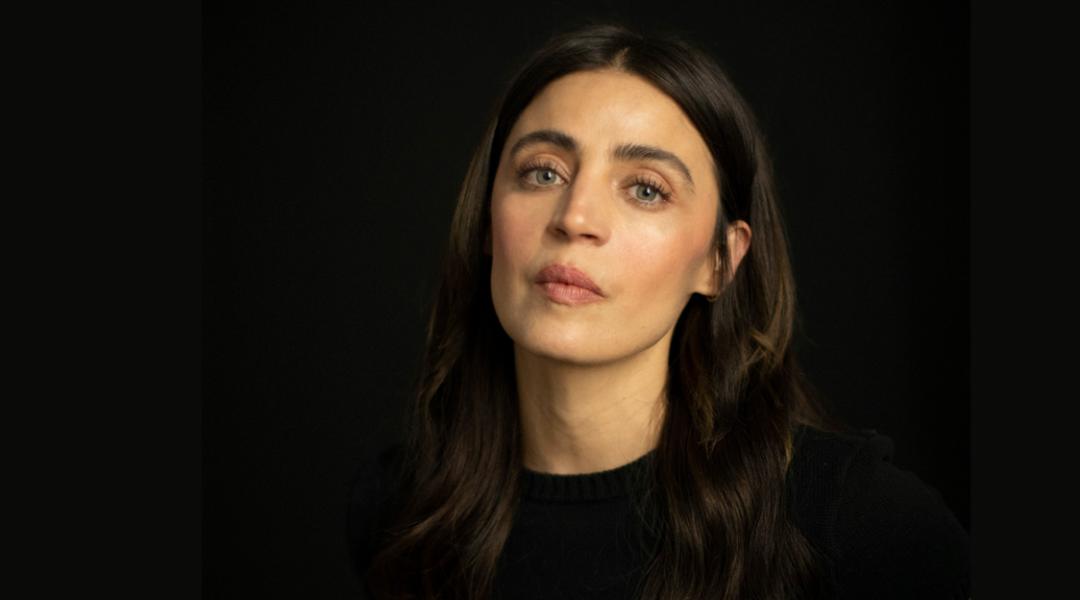Ilse Salas
Absorbing the entire world

With two consecutive nominations for the Platino Awards, the Mexican actress chats to us about inspiration, talent, and the rewarding connection between diverse cultures. Ilse Salas sees international awards not just as an opportunity to land new roles, but also as the perfect occasion to celebrate those that, as is the case with ‘Plaza Catedral’, have changed her life.
Hard work and versatility. Sensibility. Ability to adapt. Ilse Salas (Mexico City, 1981) displays these and many other qualities in her role as Alicia in Plaza Catedral, directed by Abner Benaim. This part has earnt her second nomination for the Platino Award for Best Actress, which will be handed out this Sunday in Madrid.
This is finally the year of going back to normal, how is it going for Ilse Salas?
I’m taking it slowly. I’m part of that group of people who’s still wary about doing a lot of things, and I’ve had COVID-19 twice already. I’ve been vaccinated, but I’m still not back to where I’d like. Nevertheless, I’m hoping to slowly lighten my attitude towards the pandemic, because living with so many limitations is unsustainable.
Beyond the limelight, how important is physically returning to the red carpet at festivals and premières?
Returning to in-person events like this one is obviously really important, especially parties and celebrations. That is, we’re performers, we’re actors, people who live for art and entertainment: I wouldn’t downplay the joy of sharing our work. Above all, it’s a cultural exchange. It’s also a way of drawing attention to projects we want people to see. There are many people that, once they see the name involved recognised at festivals, etc., they decide to see the film or series we’re talking about.
It’s your second nomination in barely two years, are you proud of being a Platino Award nominee? Are the awards a form of recognition or something more?
It’s really stimulating. I’m honoured to be put in the same group —both shortlists include actresses I greatly admire and respect—. Just having my name next to theirs is already a huge compliment for me. It helps the film and probably me too. You never know where work’s going to come from, if someone cares about awards or not: your directors, producers... But for me it’s a celebration of a huge effort.
“The Platino Awards are a meeting point. The cultural exchange is fantastic, and sharing differences always adds to our work”
Do you think Ibero-American film and TV receive the recognition they deserve from the public?
I’m not sure how it works in Spain, or in the rest of Latin America. I can speak for Mexico, and I think we don’t receive the recognition we deserve in film. I feel like it’s an audience that buys tickets to see a single genre, almost always comedy. That works well, but tons of high-quality films are made in Mexico, which are recognised around the world, but that the Mexican audience doesn’t consume. That’s always been something frustrating as an actress who sees those films. TV has a more captivated audience: we’re better consumers of TV than film.

Ilse Salas dreams of working with the best current Ibero-American female directors. @ Image courtesy of Mesala Films
The Platino Awards are a meeting point for Ibero-American culture, how important is this synergy of talent?
The Platino Awards are a celebration of what we do in our language. Indeed, they’re a meeting point. This year, I’ve been nominated for a film we did with a crew of people from perhaps ten or twelve Latin American countries. I’m sure that being together can generate new jobs, the cultural exchange is absolutely fantastic, and sharing differences always adds to our work.
On the subject of talent, how would you define it? Do you think it’s born or made?
I’ve never really asked myself that question. I guess there are people who are born with talent, but talent also doesn’t grow without hard work and discipline. Yes, I believe it’s something you attract, but it’s no good if you don’t work on it to make it grow.
What inspires Ilse Salas?
Everything can turn into inspiration if we keep our eyes wide open. That’s how I see it. Unexpectedly, an image I see on the street affects me a lot and I end up using it repeatedly in a role, a song, or a book. As my acting teacher, Ludwik Margules, used to say, “the difference between a good actor and a great actor is their capacity to absorb the entire world”. I agree. You have to be aware of all stimuli —of which there are many— and save them on your hard drive, because you’re going to use them eventually.
“I guess there are people who are born with talent, but talent also doesn’t grow without hard work and discipline”
What would you highlight about Plaza Catedral and which was the main challenge when preparing the role of Alicia?
Plaza Catedral is a film that became so much more to those of us involved.The whole crew came from different countries, we spent two months together in Panama (laughs)... All that adds to films, because there’s a lot of humanity and deep connections between the people involved. To prepare for the role of Alicia, one of the challenges was to match the ease of the amateur actors with whom I’d be acting. I really wanted to surrender to that and let whatever was meant to be happen without overthinking it —like I normally do—, and it all flowed naturally thanks to my co-star Fernando Xavier de Casta (deceased), the boy. It was easy to step into the fictional narrative together: we shared a deep connection and a particular shrewdness onstage. Speaking of talent, he was someone with innate talent who was sadly taken away from us by reality. He didn’t have the chance to develop that talent, sadly. Therefore, this is another reason why Plaza Catedral is so important to those of us who worked on it, because it changed all of us and became an experience that has marked us for life.
Finally, which film or series nominated for these Awards would you have liked to star in?
There are many nominations that I haven’t seen yet and that I’m dying to watch. I’m curious to see Clara Roquet’s film (Libertad), of which I’ve heard wonderful things. I’m always eager to work with contemporary female directors, I love going through their work with the hopes of being invited to work with them someday. Tatiana Huezo is also nominated for Best Director, she’s one of our most talented Mexican directors and I deeply admire her. It’s her first fictional film; I’ve seen what she’s done with documentaries and I’m hopeful that she does fiction. Furthermore, I’m also excited to see the film Blanca Portillo is nominated for, Maixabel, by Iciar Bollaín. I've heard remarkable things about it.


